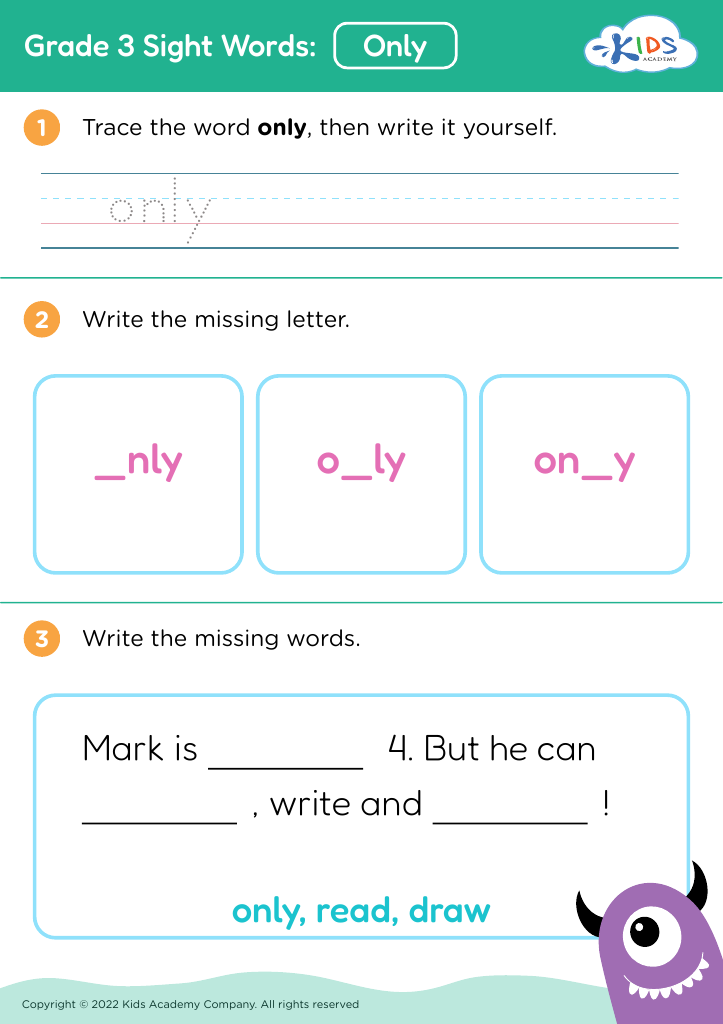Analytical thinking Reading Worksheets for Ages 8-9
8 filtered results
-
From - To
Enhance your child’s analytical thinking skills with our engaging Reading Worksheets designed for ages 8-9. These worksheets offer a variety of reading comprehension exercises that encourage critical thinking and reasoning. Students will explore different themes, characters, and plot elements, enhancing their ability to analyze and interpret texts. Each worksheet is tailored to foster not only reading comprehension but also the ability to draw conclusions, make comparisons, and identify the main ideas. Ideal for at-home learning or classroom activities, these resources support your child’s growth in a fun and interactive way. Start building strong analytical skills today with our thoughtfully designed worksheets!
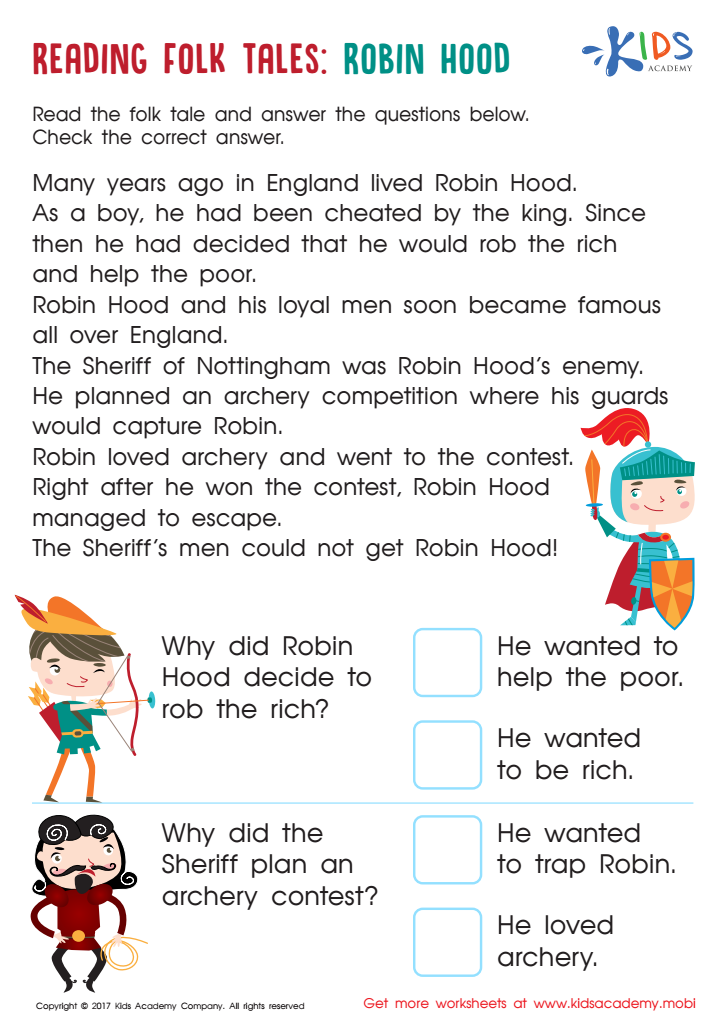

Robin Hood Folktale Worksheet
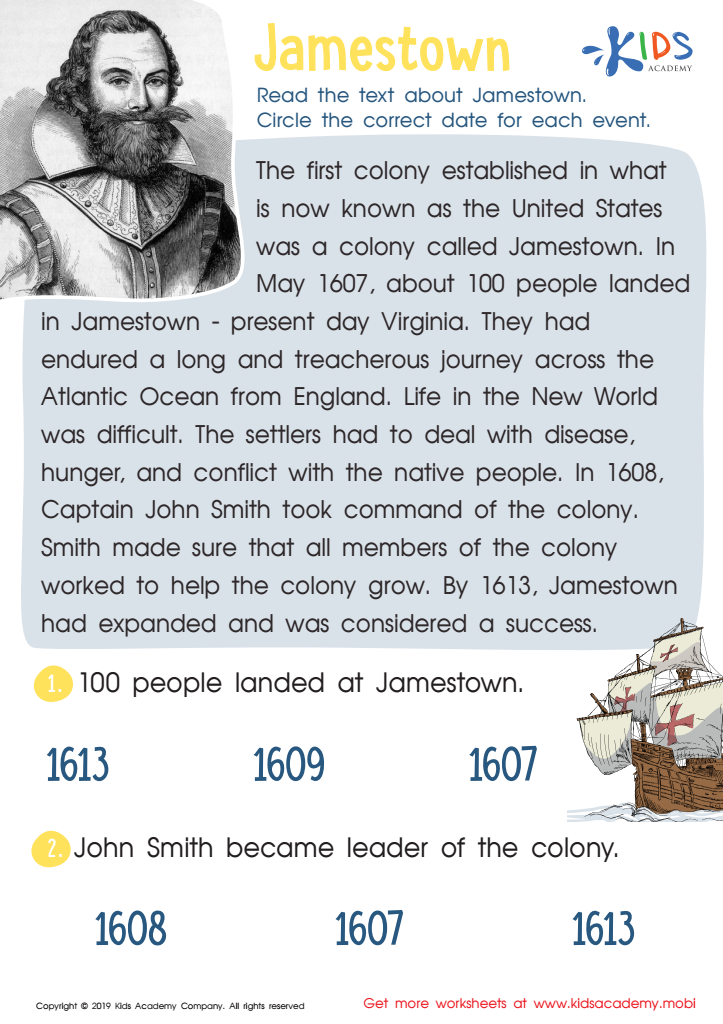

Jamestown Worksheet
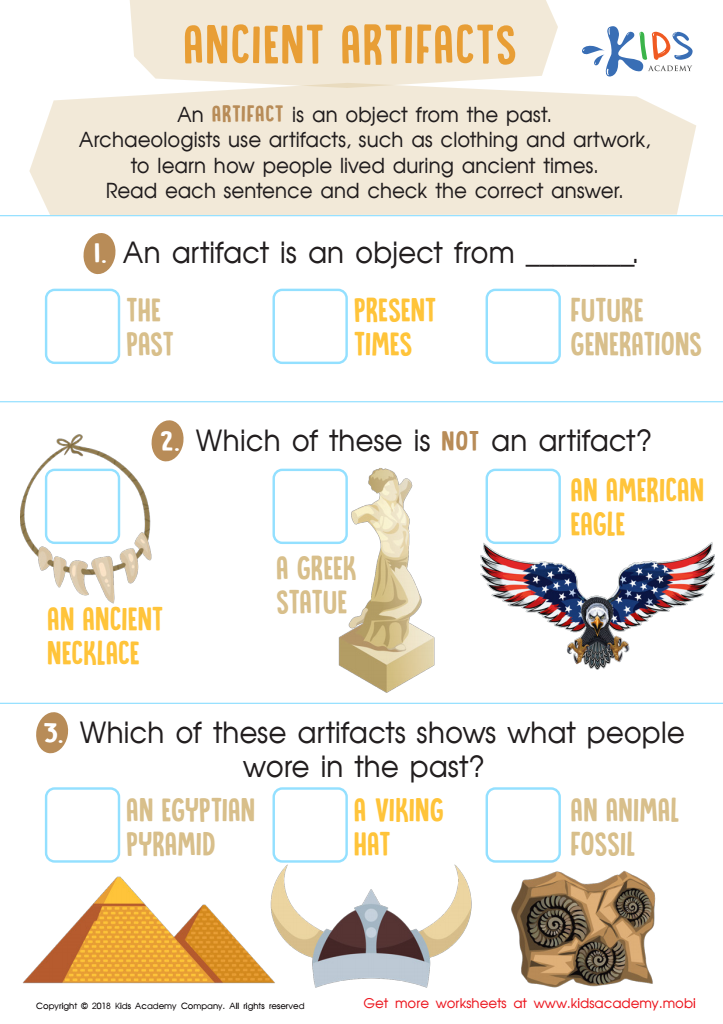

Ancient Artifacts Worksheet
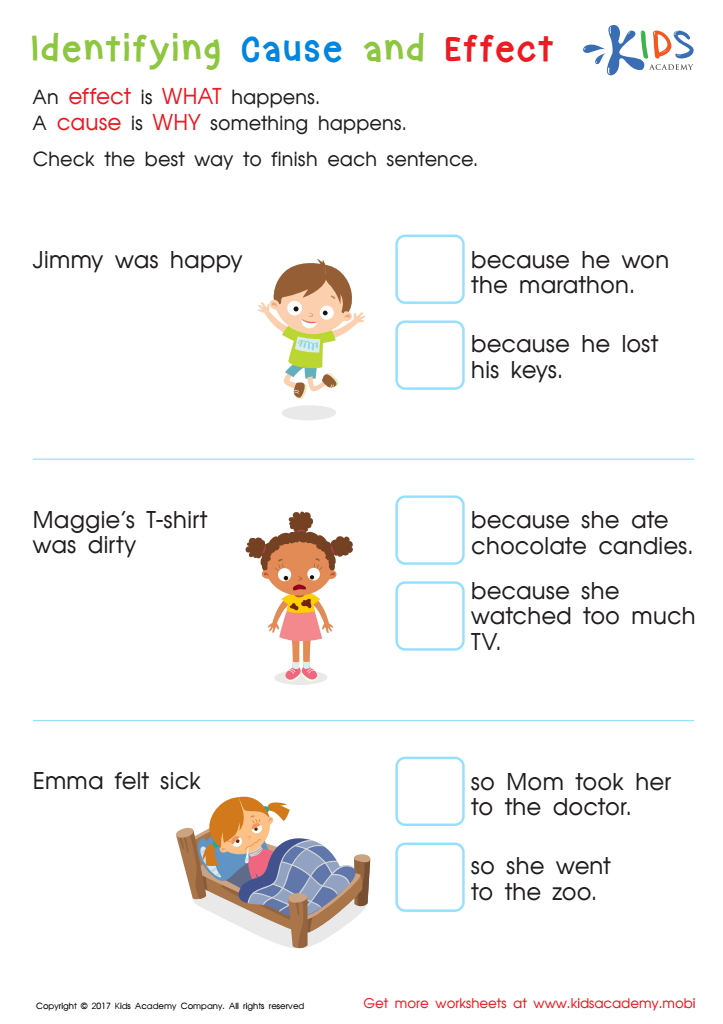

Indentifying Cause and Effect Worksheet
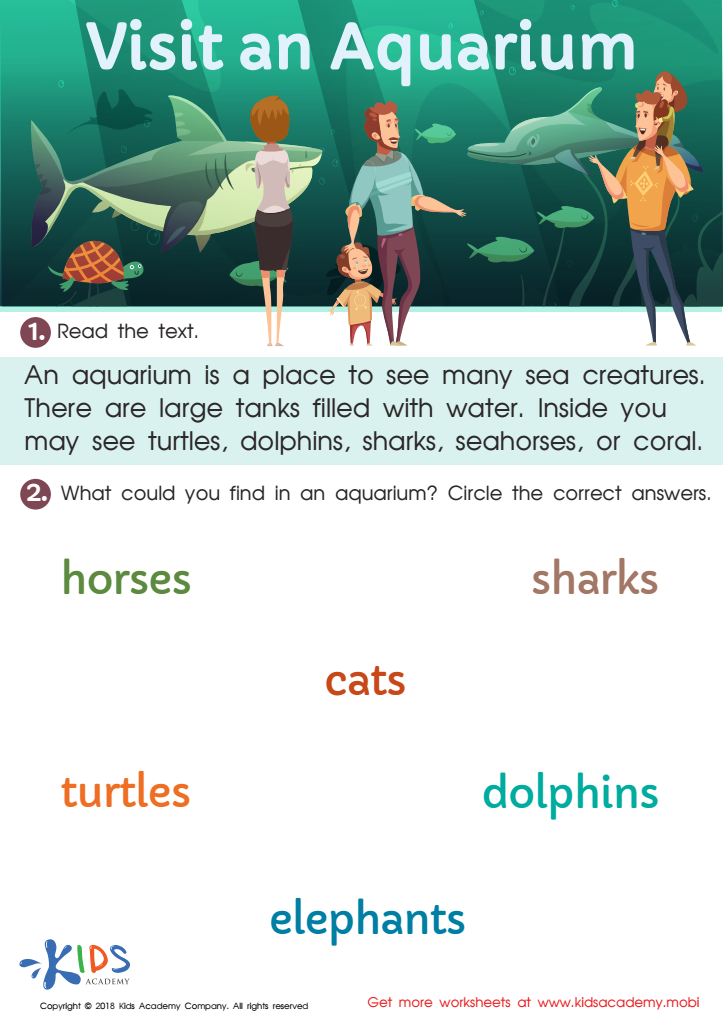

Visit an Aquarium Worksheet
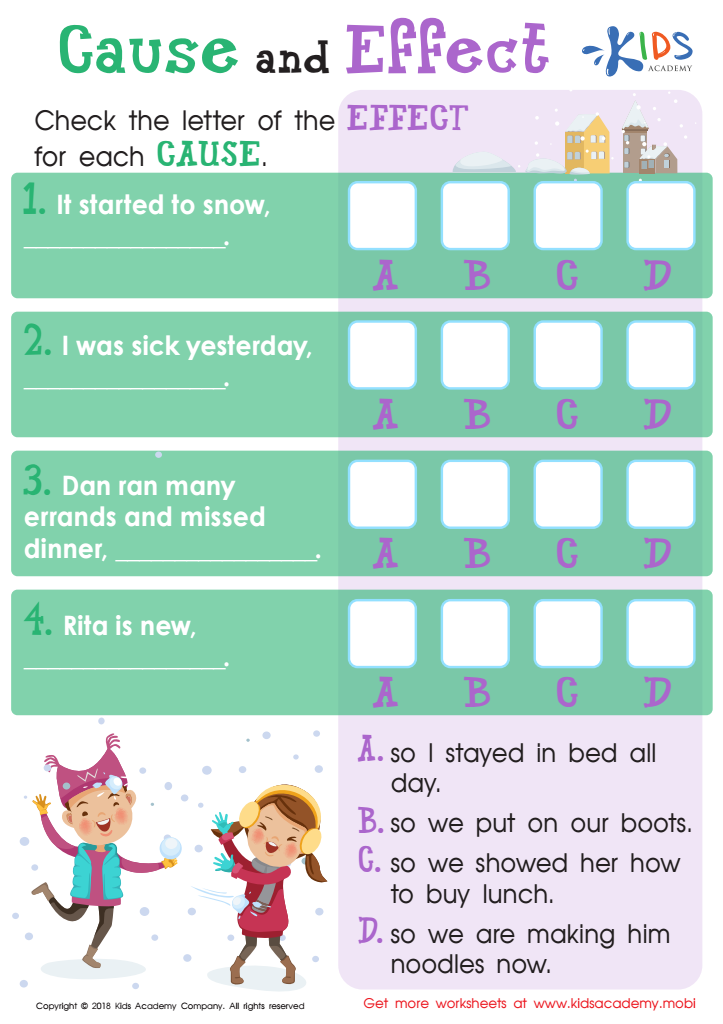

Cause and Effect Worksheet
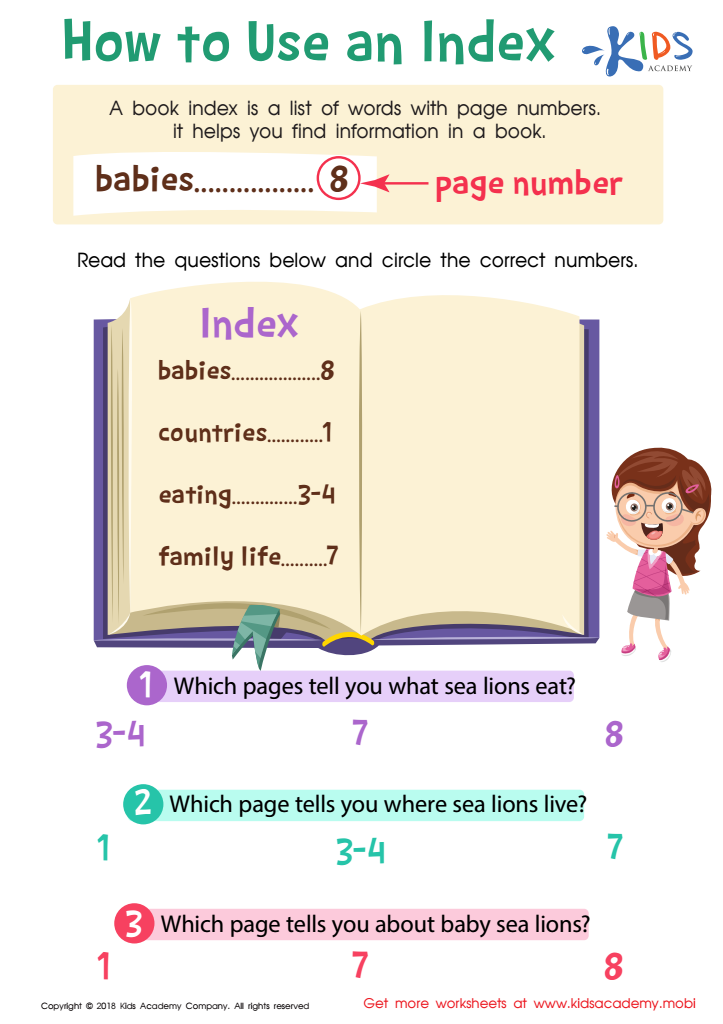

How Use Index Worksheet
Analytical thinking reading skills are crucial for children aged 8-9 because they lay the foundation for lifelong learning and critical thinking abilities. At this age, children transition from learning to read to reading to learn, making the ability to analyze texts essential. Parents and teachers should prioritize analytical reading skills to help children decipher complex ideas, evaluate information, and draw connections between various concepts.
Developing analytical reading skills enables children to question content, identify biases, and understand different perspectives, fostering a habit of critical thinking rather than passive consumption of information. This capability is invaluable in today’s information-rich society, where discerning credible sources from misinformation is vital.
Furthermore, analytical reading nurtures creativity and problem-solving. Children learn to extrapolate ideas, predict outcomes, and propose solutions by engaging actively with texts. Through guided discussions and questioning techniques, parents and teachers can encourage deeper comprehension and reflection, enhancing academic performance across subjects.
Ultimately, cultivating these skills not only improves reading proficiency but also prepares young learners for future academic challenges, equips them with necessary life skills, and encourages them to be informed, engaged citizens. Thus, fostering analytical thinking in reading should be a key focus for parents and educators alike.

 Assign to My Students
Assign to My Students
